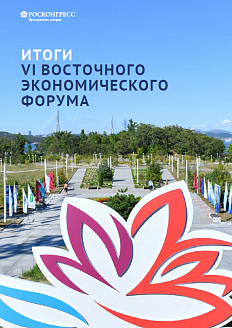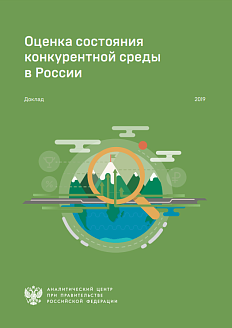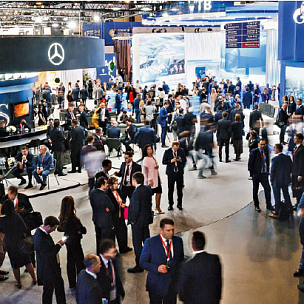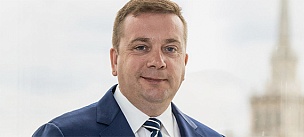In 2019, work on regional markets was one of the main areas of activity of the National Convention Bureau Association (the Russian Convention Bureau, RCB). As part of roadmaps developed jointly with the regions, the Russian Convention Bureau has been working to promote the infrastructural capabilities of the Russian regions. The RCB continues to develop Regional Event Passports which serve as a starting point for attracting key sectoral events to the country.
Russian Regions Event Potential
According to the publication, 28% of the Russian regions now promote themselves on international markets and 64% have their own tourist or event brands. Due to these achievements, the number of major international events held in Russia (excluding data for Moscow and St. Petersburg) over the past 5 years or planned for the next 5 years has increased to 94. The number of meetings of international associations has reached 482. The largest number of events was hosted by the Volga Federal District and the Siberian Federal District.

Industry experts believe that for many Russian cities, towns, and villages event tourism has become an effective tool for territory promotion. For destinations, event tourism has served as a mechanism for strengthening tourism appeal. Influence marketing will become a contributing factor in promoting Russian regions on the global tourism market.
Russian Regions Event Potential Rating
The publication presents the Russian Regions Event Potential Rating 2019, prepared by R&C Market Research Company in late 2019. The top three rankings have changed somewhat. While St. Petersburg and Ekaterinburg traditionally hold the 1st and 2nd places, Kazan has moved up reaching the 3rd position. To compile the rankings, the R&C experts have analyzed a range of criteria reflecting the event appeal of regions and their experience with hosting large and influential events, including those held on a regular basis.
The experts point out a number of trends that influenced the 2019 ranking. Stronger cooperation between the RCB and Russian regions, a common information space, and a coordinated strategy led to a rise in the number of successful applications for major international events and helped form a reserve to ensure sustainable development. The Russian Governments initiatives to form new partnerships with dynamically developing countries of Asia, Africa, and Latin America triggered the emergence of new business events which may in future be held on a regular basis, becoming regional growth drivers.
Russian Regions Event Passports
An important part in promoting the Russian regions event potential on the international event market is played by the Regions Event Passports. The Russian Convention Bureau is planning to present the Event Passports of the Sverdlovsk Region and Krasnodar Territory in early 2020.
In the Sverdlovsk Region, large exhibition centers have shaped the local exhibition, trade fair, and convention industry. Every year, the region hosts over 100 exhibitions and over 500 conventions. Krasnodar Territory has become one of the countrys landmarks. Kuban is viewed as a region with a steadily growing economy, favorable investment climate, and the best business environment in Russia. As for the event industry, the region hosts about 500 events annually.





